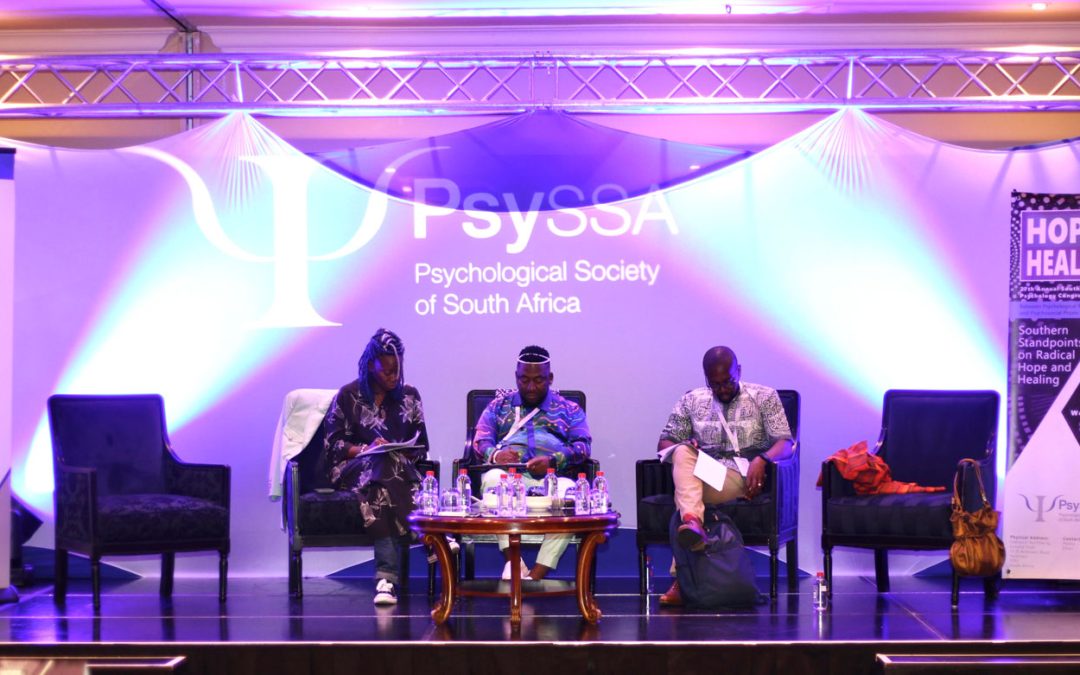In the first Invited Panel, Global Indigenous Psychologies: Movement toward healing Historical Harms, Prof Peace Kiguwa, Prof Malose Langa, Dr Mmatshilo Motsei and Mr Anele Siswana explore the question of whose knowledge is considered existent or valid as central to the project of indigenizing and decolonising psychology. In this dialogue session, the panelists consider the question of ‘who knows’ in discussions around self-care, trauma healing and building healthy communities. Drawing on their own practice, the panelists explored indigenous epistemologies as critical responses to trauma in communities. Drawing links to the many political and social intersections that continue to proliferate in society, the discussions considered problematics of femicide and GBV, community fragmentation, emotional disconnect, trauma, homophobia, poverty as part of historical harm. In considering historical harm, the panelists cautioned against the dangers of ‘psychologising’ deeply political and social problems that are legacies of historical harms. Part of this caution is to attend to the ways that apolitical approaches to trauma inadvertently victim-blame and pathologise the very traumatized individuals and communities we seek to be of service to. In the engagement with the broader audience, the conversation extended to reflect on psychology’s roots in apolitical forms of thinking and practising, the pretense to objectivity and neutral value-free science, and its emphasis on western traditions of therapy and thinking that fail to really ‘see’ the human beings it attempts to help. Drawing on their own forms of practice, the panelists invited the audience to reflect on how we can do psychology differently and how indigenous psychologies offer us something that we have sidelined for a long time.
Tel: +27 11 486 3322
info@psyssa.com


